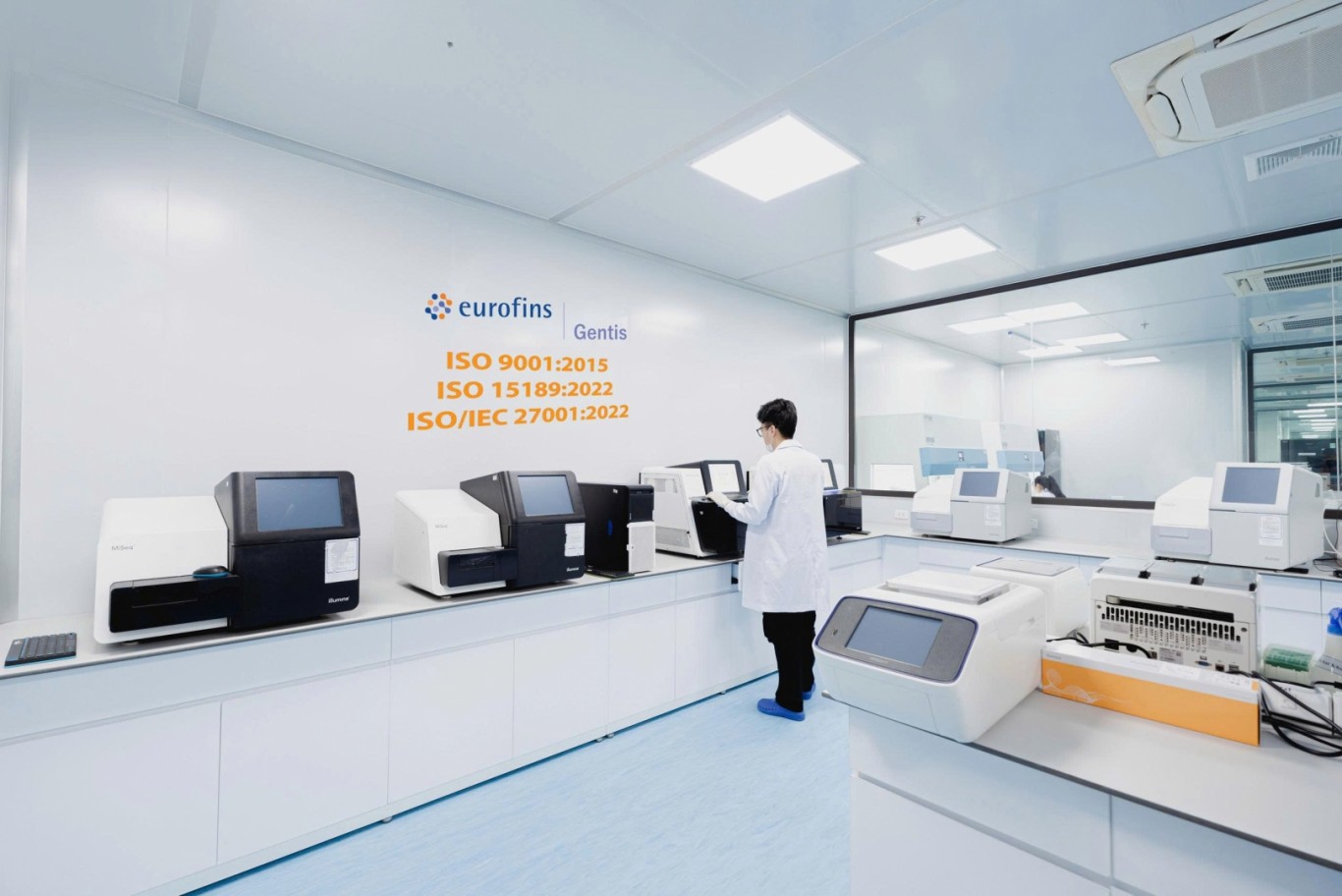Genetic roles in assisted reproduction
According to the World Health Organization’s statistics, infertility affects approximately 10% of couples of productive age. WHO has also pointed out that Vietnam is among the nations having the highest infertility rate in the world, in which 50% are those under 30. In Vietnam, It is estimated that 1 million couples face with infertility annually, accounting 7,7%
The infertility rate is equally 40% for male and female, 10% for both spouses, and 10% with unidentified causes. This phenomenon indicates that infertility can be attributed to both male and females.

Dr. Pham Dinh Minh presented the report “Researching and applying genetic tests in enhancing the effectiveness in assisted reproduction examinations and treatments in Vietnam”
In addition to causes such as pathology, environment, and lifestyle; Genetics and abnormalities due to mutations in genes also cause infertility. Presenting at the 5th annual science conference HASAM 2024, Dr. Pham Dinh Minh (Director of R&D department at GENTIS) revealed “Genetics is involved in virtually all assisted reproductive processes, facilitating the diagnosis of genetic pathologies and their prevention in subsequent generations, determining and diagnosis of infertility’s root causes, recurrent miscarriages, and supporting reproductive enhancement. Notably, the collaboration between genetic geneticists and clinicians, along with embryologists, contributes to establishing precise diagnoses and the most suitable, effective, and optimal assisted reproduction treatment strategies for patients”.
According to the experts, genetic screening before embryo transfer is an essential breakthrough in the assisted reproduction field. Preimplantation Genetic Testing/ PGT analyzes genetic abnormalities ( in gene and chromosome level ) in embryos before being transferred into the mother’s uterus.

Associate Professor Francesca Spinella presented the report: “Advances in Preimplantation Genetic Screening: A European Perspective and Data from the European Society for Human Reproduction and Embryology (ESHRE) PGT Consortium.”
Sharing about advancements in preimplantation genetic screening in Europe, Senior Expert Advisor of GENTIS - Assoc Prof. Dr. Francesca Spinella (Former president of the ESHRE PGT Consortium and Senior Medical Information Specialist at Eurofins Genoma Group) noted “There are 3 traditional types of preimplantation genetic testing (PGT) commonly used: PGT-A, PGT-SR, and PGT-M. In which, PGT-A helps identify euploid and aneuploid embryos, thus increasing the chances of success in in vitro fertilization (IVF). PGT-SR can detect structural abnormalities larger than 5Mb, allowing for the selection of normal embryos, thereby improving the likelihood of achieving a successful pregnancy. PGT-M is used to screen for single-gene inherited diseases, ensuring that only embryos free from genetic mutations are selected for transfer”.
Currently, Eurofines Genoma Group is researching and developing new PGT testing packages namely niPGT-A and PGT Next. NiPGT-A is a non-invasive PGT-A test performed on the used culture medium. Notably, PGT Next can detect chromosomal abnormalities, both number and structure, like PGT-A/SR, but it also has the capability to detect polyploidy and identify diploid embryos without abnormalities, even in cases of morphological abnormalities,” added Assoc Prof. Dr. Francesca Spinella.
GENTIS's Ecosystem of Genetic Tests in Reproductive Medicine
The presentation “Research and Application of New Genetic and Genomic Tests to Improve Reproductive Health Diagnosis and Treatment in Vietnam” by Dr. Pham Dinh Minh (Director of R&D at GENTIS) drew significant attention at the HASAM 2024 Annual Scientific Conference. Dr. Minh's report highlighted how modern genetic testing technologies have benefited patients and improved the effectiveness of reproductive treatments.

Eurofins Genoma Collaborates with GENTIS to Develop Advanced Genetic Testing Technologies
The report “Researching and applying new genetic tests to enhance the effectiveness in assisted reproductive examinations and treatments” performed by Dr. Pham Dinh Minh (Director of R&D department at GENTIS) had drawn huge attention from delegates at the HASAM 2024 conference. Dr. Minh’s report pointed out that advanced genetic tests have benefited patients as well as enhanced the effectiveness in assisted reproductive treatments.
GENTIS is proud to be a leading Genetic Testing Center in Vietnam with state-of-the-art equipment. Notably, GENTIS is also the first genetic testing facility in Vietnam to achieve international standards – ISO 15189:2022 accredited by BoA and ISO/IEC 27001:2022 accredited by GICG, while fully complying with the strict regulations of the Ministry of Health and international external quality control programs.
Currently, GENTIS offers a complete ecosystem of genetic tests for reproductive support, including tests for parents, embryos, and conditions for embryo transfer; as well as tests for maternal health and pregnancy. These specialized tests help identify the causes of infertility in both men and women, screen for genetic abnormalities, prevent rare diseases in preimplantation embryos, and support embryo transfer and pregnancy monitoring. Conducting these in-depth tests enables clinicians to provide effective treatment solutions, helping to make the dream of parenthood a reality for many families facing infertility challenges.











